
Garo Owens, MD, is president of Gary Owens Associates, and here he discusses optimizing treatment goals for patients with pulmonary arterial hypertension (PAH) while reducing care costs.

Garo Owens, MD, is president of Gary Owens Associates, and here he discusses optimizing treatment goals for patients with pulmonary arterial hypertension (PAH) while reducing care costs.

Personalizing treatment for narcolepsy requires shared decision-making between patients and clinicians to understand the most important symptoms that need to be treated and the right therapy, said Michael Thorpy, MD, director of the Sleep-Wake Disorders Center at Montefiore Medical Center and professor of neurology at Albert Einstein College of Medicine.

The ALLIANCE trial is the first randomized blinded trial to investigate tenofovir alafenamide vs tenofovir disoproxil fumarate in treatment-naive individuals who have comorbid HIV/hepatitis B virus (HBV) infection.
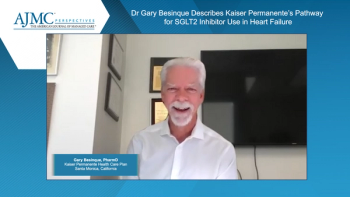

Viral Shah, MD, an endocrinologist and scientist, discusses ongoing research on preventing bone fractures in people with type 1 diabetes (T1D).


Data presented at the American Society of Clinical Oncology annual meeting found non-White patients are less likely to receive immunotherapy for head and neck cancer, said Amila Patel, PharmD, chief clinical officer, Navigating Cancer.
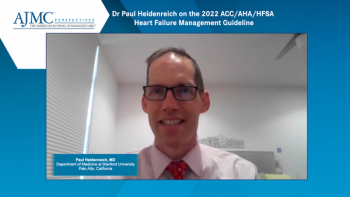

Even though the Oncology Care Model (OCM) ended on June 30, 2022, there are some improvements that practices should continue implementing, said Susan Escudier, MD, FACP, vice president of value-based care and quality programs, Texas Oncology.
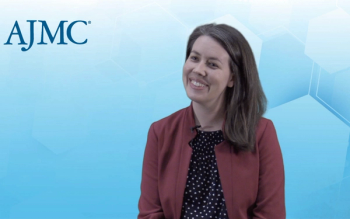
Elaine Goodman, MD, MBA, clinical lead for population health management at Mass General Brigham, explains how patient access and engagement with health technologies, and the ways these technologies are developed, has evolved.

Navigating Cancer has found patients, including those who are elderly, are adopting applications to stay connected with their care teams, said Amila Patel, PharmD, chief clinical officer, Navigating Cancer.

As part of the investigation into pharmacy benefit managers (PBMs), the Federal Trade Commission (FTC) should delve into how PBMs are impacting and fueling drug prices and set up guardrails to protect Americans, said Ted Okon, MBA, executive director, Community Oncology Alliance.

In retina surgery, obtaining prior authorization is an extra burden, and a delay in treatment for some of these patients could mean loss of vision, said Sabin Dang, MD, ophthalmologist with The Retina Institute.
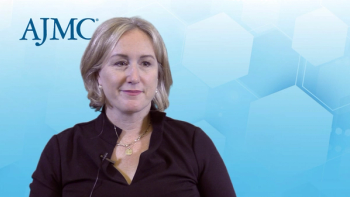
Understanding that patients who are HER2-low are different from patients who are HER2-positive and -negative means having the right way to evaluate and identify these patients, explained Debra Patt, MD, PhD, MBA, executive vice president of Texas Oncology.

Viral Shah, MD, an endocrinologist and scientist, discusses his research on fracture risk assessment without bone mineral density as a predictor of major fractures in patients with type 1 diabetes (T1D).

Elaine Siegfried, MD, professor of pediatrics and dermatology, Saint Louis University Health Sciences Center, speaks on step edits and other barriers limiting access to biologic, topical, and other medications for the treatment of atopic dermatitis (AD).

The use of digital health solutions has been a tremendous benefit during the pandemic that should continue, said Susan Escudier, MD, FACP, vice president, value-based care and quality programs, Texas Oncology.
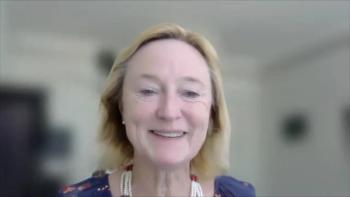
In part 2 of our interview with Anne McCall, PhD, provost and senior vice president for academic affairs at Xavier University of Louisiana, she discusses in greater detail the university’s 3-year partnership with Takeda, in particular how the directions it goes in will be influenced by the history of unequal health care delivery in the state.

Previously, patients with low expression of HER2 were categorized as HER2-negative but adding the HER2-low classification creates new opportunities for patients with advanced breast cancer, explained Debra Patt, MD, PhD, MBA, executive vice president of Texas Oncology.

While prior authorizations are put in place to ensure appropriate use of expensive therapies, they create a substantial burden for clinicians and patients, said Sabin Dang, MD, ophthalmologist with The Retina Institute.

Elaine Goodman, MD, MBA, clinical lead for population health management at Mass General Brigham, talks about how the COVID-19 pandemic should impact developments in digital health management going forward.

Many algorithms claiming to identify melanoma better than dermatologists are trained on retrospective datasets, which is not reflective of real-world clinical practice, said Jonathan Kentley, MBBS, MSc, research fellow at Memorial Sloan Kettering Cancer Center.

Institutional racism within the medical field and the treatment of people from lower socioeconomic communities plays a large role in racial and ethnic inequities, explained Vivienne Hau, MD, clinical assistant professor with the Kaiser Permanente Bernard J. Tyson School of Medicine.

At the beginning of the pandemic, remote retinal imaging declined sharply due to a recommendation to stop nonessential eye care services in the first months of 2020, said Parisa Emami-Naeni, MD, MPH, assistant professor of ophthalmology at University of California, Davis, and vitreoretinal surgeon and uveitis specialist at UC Davis Eye Center.

Every year, the American Society of Retina Specialists releases the results of its latest Preferences and Trends Survey at the annual meeting. This year, the survey highlighted some surprising differences between US and international retina specialists, including off-label medication use and what drives drug choices for patients, said Paul Hahn, MD, vitreoretinal surgeon at NJRetina.

Anne McCall, PhD, provost and senior vice president for academic affairs at Xavier University of Louisiana, in New Orleans, delves into the new partnership between the university and Takeda.

Triamcinolone acetonide injectable suspension (Xipere) uses a novel delivery mechanism that seems to benefit all patients with macular edema due to noninfectious uveitis, regardless of where the inflammation occurs, said Steven Yeh, MD, professor and the Stanley Truhlsen Jr. Chair in Ophthalmology at the Truhlsen Eye Institute, University of Nebraska Medical Center.

Patrick Burnett, MD, PhD, FAAD, chief medical officer of Arcutis Biotherapeutics, discusses findings of a recent survey exploring the emotional burden of plaque psoriasis and unmet needs related to current topical treatments.
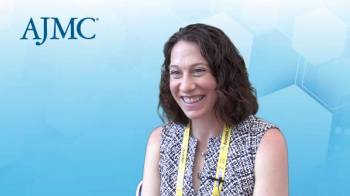
Patients, parents, and diabetes health care providers all play a role in ensuring children with type 1 diabetes (T1D) get adequate sleep, said Stacey Simon, PhD, sleep psychologist and associate professor, University of Colorado Denver, Children's Hospital Colorado.

Connecting with colleagues in person allows for meaningful conversations about the future of the retina care field and patients, said Steven Yeh, MD, professor and the Stanley Truhlsen Jr. Chair in Ophthalmology at the Truhlsen Eye Institute, University of Nebraska Medical Center.

259 Prospect Plains Rd, Bldg H
Cranbury, NJ 08512
© 2025 MJH Life Sciences®
All rights reserved.
